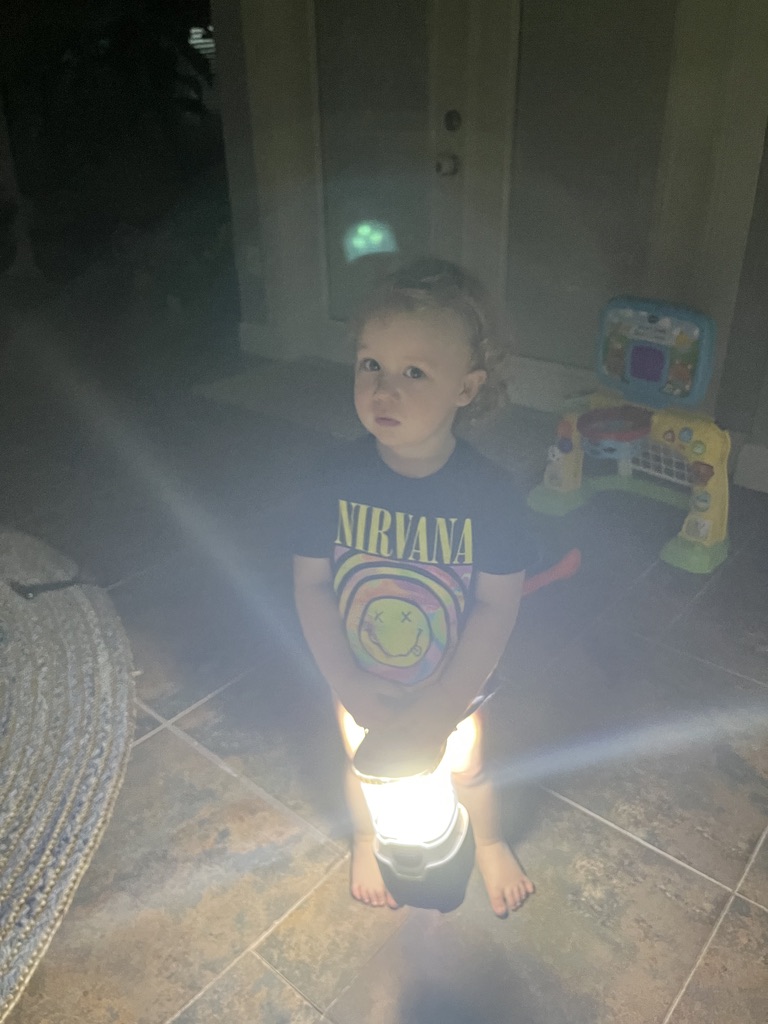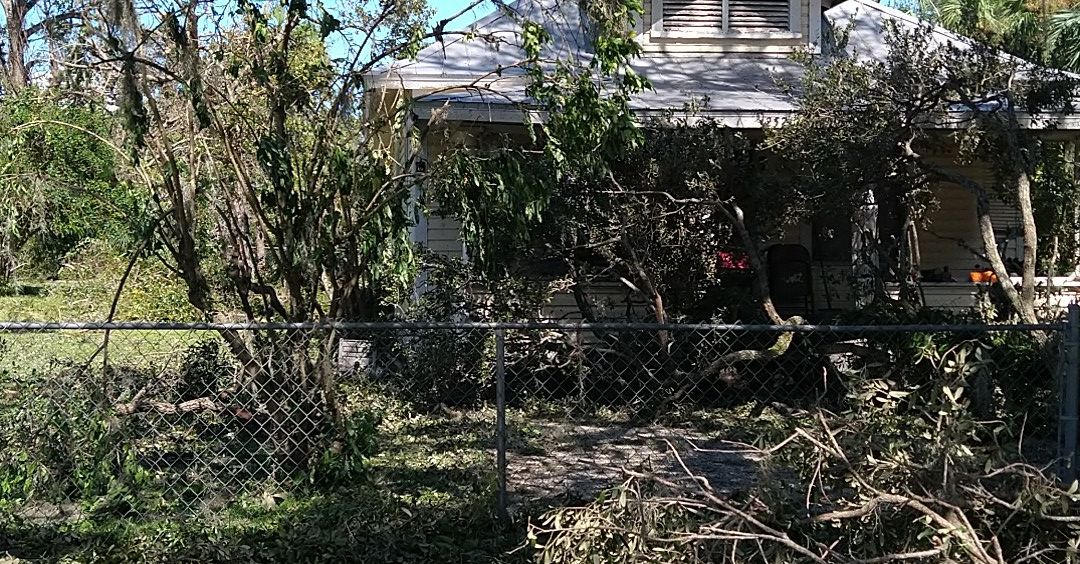When Tampa issued a mandatory evacuation on Monday, Bailey Shatney, 25, and her husband Cody Uttermohlen, 26, knew they had to get out. During 2004’s Hurricane Charley, a Category 4 storm, Shatney and her mother fled to a shelter in the middle of the storm after a tornado approached their house. She and Uttermohlen knew they didn’t want their 20-month-old son, Zeke, to have the same experience. With just a half tank of gas—and glad to even have that much, in an area where gas was scarce and there were no public transportation options—they made their way to Uttermohlen’s parents’ house in Port Charlotte, Fla.
When Hurricane Ian made landfall in Florida on Wednesday, it was one of the most powerful hurricanes in American history; with winds above 150 miles per hour, it became one of the most powerful storms to reach the United States mainland. Although there is not yet an official count of the casualties caused by the storm, President Joe Biden has warned there could be a “substantial loss of life.” About 2.67 million homes and businesses were left without power, Reuters reported.
And in Port Charlotte, misled by a forecast showing the hurricane would move through Tampa, Shatney and Uttermohlen had accidentally evacuated into the storm’s path.
They considered fleeing to a shelter, but they were trapped—first by a tornado warning, and then after they learned through local news that high winds had shuttered local shelters. Suddenly, the canal that flowed at the bottom of a slope in the backyard seemed like a threat.
Read more: Yes, Climate Change Is Making Storms Like Hurricane Ian Worse
After they heard on the news that flood waters could rise above 18 feet—above the level of the house—they agreed that they would use kayaks to flee if the one-story home was underwater, and do anything necessary to protect Zeke. “I had to look at my family and be like, if it comes down to it, your priority is to save my son,” says Shatney. “My mother-in-law was the same way—she looked at her husband, my father-in-law. And I looked at my husband and we’re like, you guys are the strongest people here. It’s your responsibility to get that little boy to safety, regardless of what happened to us.” The family busied themselves keeping the boy calm, singing to him, offering him toys and using a baby gate to keep him away from the door they hadn’t boarded up, in case it blew out.

At the same time, southeast of Shatney’s family, in downtown Fort Myers, Bradley Burdette, 51, decided to ride the storm out with his cat, Jack. Burdette says he’d had a bad experience at a shelter during a past hurricane: he showed up for protection but ended up not able to leave for days. He also thought his house, which was built above ground on a concrete foundation, could weather the storm. He’d moved there from a home across the street after that house flooded during a storm; his current home hadn’t.
Burdette also had a plan if things went south. He filled a bathtub, to make sure he could keep flushing the toilet if the water was cut off. He filled the freezer with water bottles, to move into his fridge if the power went out. And knowing his home is about two miles from the Caloosahatchee River, he also had a plan for if the house flooded: to use a hammer and drywall saw to escape to the roof. “I’ll cut a hole right in my ceiling. I’ll jump up on that secretary, and I’ll just stay up in there,” Burdette says. “And of course, if it starts coming up even harder than that, then I’ll just punch a hole through the roof and hopefully somebody will come by and get me.”

It didn’t come to that, but Burdette had a harrowing day. “I got plastered. My yard is a war zone. Every tree in my yard is wrecked,” he say Burdette. “For a while there, it was just a lot of weird noises. It was like a train, you could hear it coming. It just got louder and louder and it just went BOOM.”
Read more: How DeSantis Handles Hurricane Ian Will Shape His Political Future
Shatney likewise compares the noise of Hurricane Ian to a passing train.
There in Port Charlotte, though the storm surge didn’t reach their house, the wind tore up the surrounding area—obliterating the shed and sending its contents around the yard, ripping the roofs off neighbors’ houses, and tearing apart trees and vegetation. A pressure drop caused by the storm added to their suffering, making the family’s ears pop and giving them headaches. “The scariest thing is the not knowing, especially when your house is boarded up, because all you hear is stuff slamming into your house,” Shatney says. “And you don’t know if the next second the thing that is making that loud noise is your roof ripping off or your window shattering.”
By the morning, the family was grateful to have survived. For now, they don’t know when they’ll be able to go home to Tampa, as the roads are scattered with trees, local gas stations are damaged, and the city lost power. The couple also doesn’t know what condition their home is in, as their condo complex didn’t permit residents to put up storm shutters. All the same, Shatney says, “I think thankful is kind of the word of the day.”
More Must-Reads from TIME
- Cybersecurity Experts Are Sounding the Alarm on DOGE
- Meet the 2025 Women of the Year
- The Harsh Truth About Disability Inclusion
- Why Do More Young Adults Have Cancer?
- Colman Domingo Leads With Radical Love
- How to Get Better at Doing Things Alone
- Michelle Zauner Stares Down the Darkness
Contact us at letters@time.com